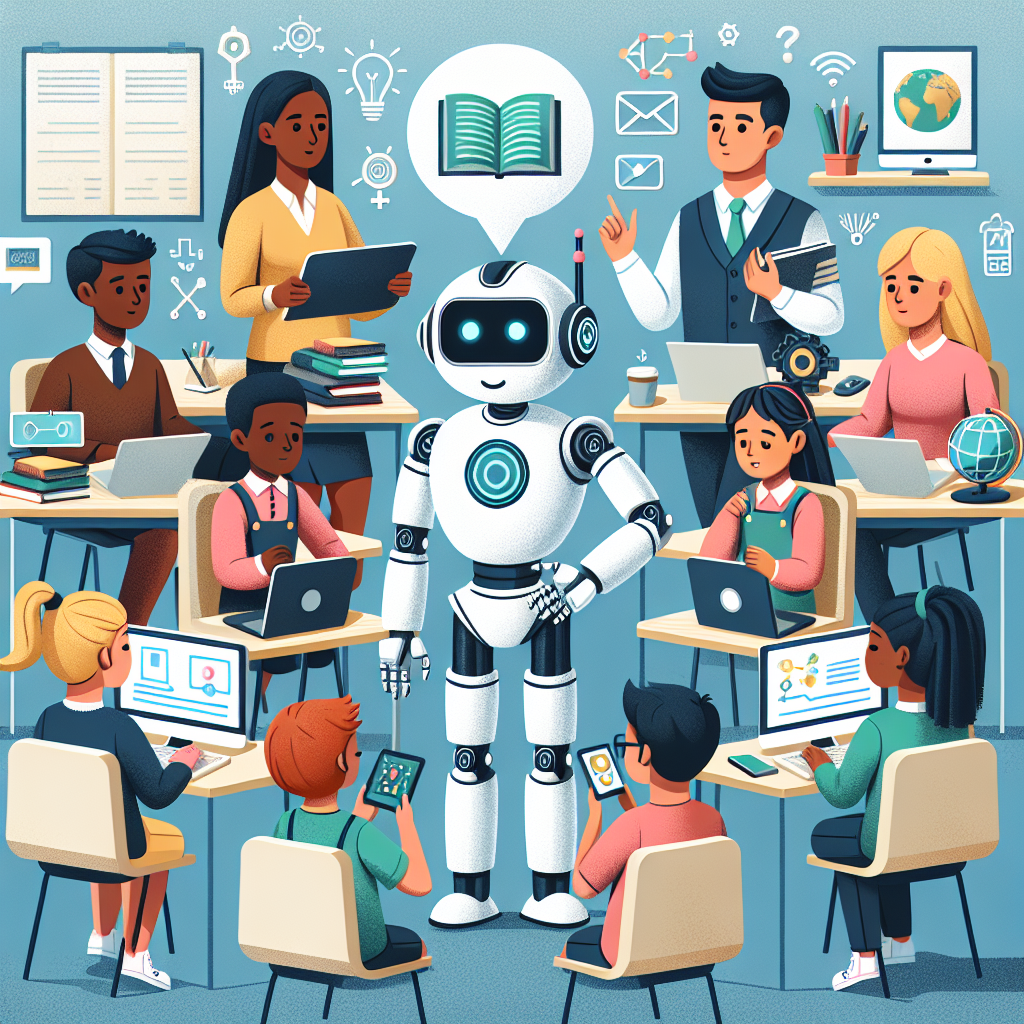In recent years, the field of education has seen significant advancements in technology, particularly in the area of artificial intelligence (AI) automation. AI automation refers to the use of artificial intelligence technologies to automate tasks and processes in various aspects of education, from administrative tasks to personalized learning experiences for students. This article will explore the role of AI automation in education, its benefits and potential challenges, and how it is shaping the future of learning.
Benefits of AI Automation in Education
There are several benefits of incorporating AI automation in education, including:
1. Personalized Learning Experiences: AI automation can analyze student data and behavior to create personalized learning experiences tailored to individual needs and preferences. This can help students learn at their own pace and in a way that suits their learning style, leading to improved academic performance.
2. Increased Efficiency: AI automation can streamline administrative tasks such as grading, scheduling, and attendance tracking, allowing educators to focus more on teaching and student support. This can save time and resources, leading to a more efficient and effective learning environment.
3. Enhanced Student Engagement: AI automation can provide interactive and engaging learning experiences through chatbots, virtual tutors, and other AI-powered tools. This can help students stay motivated and interested in learning, leading to higher levels of engagement and participation.
4. Data-Driven Decision Making: AI automation can analyze vast amounts of data to identify trends and patterns in student performance, attendance, and behavior. This can help educators make informed decisions about curriculum design, teaching strategies, and student support services, leading to improved outcomes for students.
Challenges of AI Automation in Education
While AI automation offers many benefits, there are also several challenges that need to be addressed, including:
1. Privacy and Security Concerns: AI automation requires the collection and analysis of large amounts of data, raising concerns about privacy and security. Educators must ensure that student data is protected and used responsibly to prevent data breaches and unauthorized access.
2. Equity and Access: AI automation may exacerbate existing inequalities in education, as not all students have equal access to technology and resources. Educators must ensure that AI-powered tools are accessible to all students, regardless of their background or socioeconomic status.
3. Teacher Training and Support: AI automation requires educators to learn new skills and adapt to new technologies, which can be challenging for some teachers. Educators must receive adequate training and support to effectively integrate AI automation into their teaching practices.
4. Ethical Considerations: AI automation raises ethical questions about the role of technology in education, such as the use of AI-powered tools for assessment and decision making. Educators must consider the ethical implications of AI automation and ensure that it is used responsibly and ethically.
The Future of AI Automation in Education
Despite the challenges, the future of AI automation in education looks promising. As technology continues to evolve and improve, AI-powered tools will become more sophisticated and effective at supporting teaching and learning. Educators and policymakers must work together to harness the potential of AI automation in education while addressing the challenges and concerns that come with it.
FAQs
1. What is AI automation in education?
AI automation in education refers to the use of artificial intelligence technologies to automate tasks and processes in various aspects of education, from administrative tasks to personalized learning experiences for students.
2. What are the benefits of AI automation in education?
Some benefits of AI automation in education include personalized learning experiences, increased efficiency, enhanced student engagement, and data-driven decision making.
3. What are the challenges of AI automation in education?
Some challenges of AI automation in education include privacy and security concerns, equity and access issues, teacher training and support needs, and ethical considerations.
4. What is the future of AI automation in education?
The future of AI automation in education looks promising, with advancements in technology leading to more sophisticated and effective AI-powered tools for teaching and learning. Educators and policymakers must work together to harness the potential of AI automation in education while addressing the challenges and concerns that come with it.

